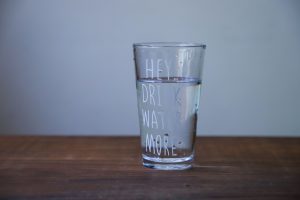In order to stick to a healthy diet, it is important to consume the right amount of calories for how active you are throughout the day. You must have a balanced diet so that your body receives all the nutrients necessary with the energy you use. It is recommended that men eat around 2,500 calories a day, while women should have 2,000 a day. Here are a few eating tips to focus on every day.

Do Not Skip Breakfast
It is always said that breakfast is the most important meal of the day, and that’s because it is. Eating breakfast is what kick starts your metabolism for the day and helps you to lose and/or maintain weight. Research has actually shown that people who eat breakfast regularly are less likely to be overweight.
Eggs with whole grain toast or a low-sugar cereal with fruit is a nutritious healthy way to start the day.
Eat Less Salt
Too much salt can raise your blood pressure which makes your heart pump more than normal. This can lead to heart disease or a stroke. Reading food labels is a good way to cut down on your salt intake. Foods that we eat already such as bread and sauces contain salt in it.
More than 1.5 grams of salt over 100 grams means that the food is high in salt. You should try to limit your salt intake to no more than 6 grams a day.
Drink Plenty of Fluids

Getting enough liquids in a day is important to stay hydrated and help flush out your system of toxins. It is recommended that a person drink 8 glasses of water a day in addition to the fluid we get from the food we eat.
Avoid sugary soft and fizzy drinks, and unsweetened fruit juice and smoothies because they are high not only in sugar but in calories as well. Stick to a cup of teas, fruit juices, smoothies or vegetable juices. However, water is the most essential for your health.
Eat More Fish
Fish offers a lot of protein, vitamins, and minerals, which is why it is good for your body and health. They contain a lot of omega-3 fats, which is essential for heart health, preventing heart disease. You should try to eat at least 2 portions of fish a week, one oily fish and one non-oily.
Some oily fish include salmon, mackerel, trout, herring, fresh tuna, sardines, and pilchards.
Non-oily fish include haddock, plaice, coley, cod, canned tuna*, skate, and hake.
*Canned fish contain a lot of salt, so be sure to keep an eye on salt intake to a minimum.
Eat Plenty of Fruits & Vegetables
Doctors recommend that we eat at the minimum five servings of fruits and vegetables a day. A lot of people do not accomplish this because it may seem to be too much. You can easily eat a banana or blueberries in the morning with your breakfast. And as far as the rest of the day, unsweetened fruit or vegetable juice/smoothie counts as another serving, and at lunch and dinner try to have a cup of vegetables, raw or cooked.
Watch Starchy Carbohydrates
Starchy carbohydrates such as potatoes, rice, bread, and pasta should make up over a third of the food you eat. A lot of people are scared to eat carbs and cut them out of their diet completely to lose weight, but these carbs are important. They can help you feel fuller for longer, just be sure to try to choose whole grain for a healthier option.
You should aim for at least one starchy carbohydrate each meal, but make sure to keep an eye on what you put on these starches, Calories add up quick when you add butter to bread or creamy sauces on pasta.
Achieving these helpful eating tips and turning them into habits will help you live a healthier life. Over time of choosing wisely what you eat, it will become a habit to make healthier lifestyle options, which in turn is best for heart health, body, and weight.